What Are Tokunbo Cars?
In Nigeria, the term “Tokunbo cars” refers to used cars that have been imported from abroad, primarily from countries like the United States, Canada, and the United Kingdom. These vehicles have gained immense popularity among Nigerian car buyers for various reasons, including affordability, a wide selection of models, and the allure of foreign brands.
As the demand for Tokunbo cars continues to rise, understanding the intricacies of this market becomes essential for anyone looking to make a purchase.
The Nigerian automotive landscape is characterized by a vibrant foreign used car market that caters to diverse consumer needs. With a plethora of options available, from compact sedans to luxurious SUVs, potential buyers often find themselves navigating a maze of choices. However, while the appeal of Tokunbo cars is undeniable, it’s crucial to be informed about pricing, purchasing processes, and maintenance considerations.
In this blog post, we will delve into the world of Tokunbo cars for sale in Nigeria, providing detailed insights into popular brands and models, price ranges, buying platforms, financing options, and much more. Whether you are a first-time buyer or looking to upgrade your vehicle, this guide aims to equip you with the knowledge needed to make an informed decision in the bustling Nigerian Foreign Used car market.
Overview of the Nigerian Tokunbo Cars Market
Current Trends
The Nigerian car market has experienced significant evolution over the past few years, particularly in the realm of used vehicles. The increasing economic pressures and fluctuating exchange rates have led many consumers to seek more affordable transportation options. As a result, Tokunbo cars have surged in popularity, offering a viable alternative to brand-new vehicles.
Growth of the Used Car Market
The demand for used cars has been bolstered by a growing middle class that prioritizes value for money. Many buyers are now opting for Tokunbo cars due to their competitive pricing compared to new models. This shift has contributed to the expansion of both online and offline marketplaces dedicated to used vehicles.
Popularity of Foreign Used Cars (Tokunbo Cars)
Foreign used cars are particularly favoured for their reliability, advanced technology, and often superior build quality compared to local options. Brands like Toyota and Honda have established a strong reputation among Nigerian consumers, making them top choices in the Tokunbo segment.
Market Dynamics
Understanding the factors that influence car prices in Nigeria is crucial for potential buyers. Several elements come into play when determining the cost of Tokunbo cars.
Factors Influencing Tokunbo Car Prices in Nigeria
- Age and Condition: Generally, newer models in excellent condition command higher prices.
- Mileage: Cars with lower mileage are often more desirable and thus more expensive.
- Brand Reputation: Well-known brands typically hold their value better than lesser-known ones.
- Market Demand: Seasonal trends and economic conditions can affect demand and subsequently influence prices.
Role of Import Duties and Taxes
Import duties and taxes significantly impact the pricing structure of Tokunbo cars. The Nigerian government imposes various tariffs on imported vehicles, which can lead to increased costs for dealers and consumers alike. Understanding these financial implications is vital for buyers looking to navigate the market effectively.
In short, the Nigerian car market is characterized by a robust demand for Tokunbo cars driven by economic factors and consumer preferences. By grasping current trends and market dynamics, prospective buyers can make informed decisions when entering this vibrant marketplace.
Popular Tokunbo Cars Brands and Models
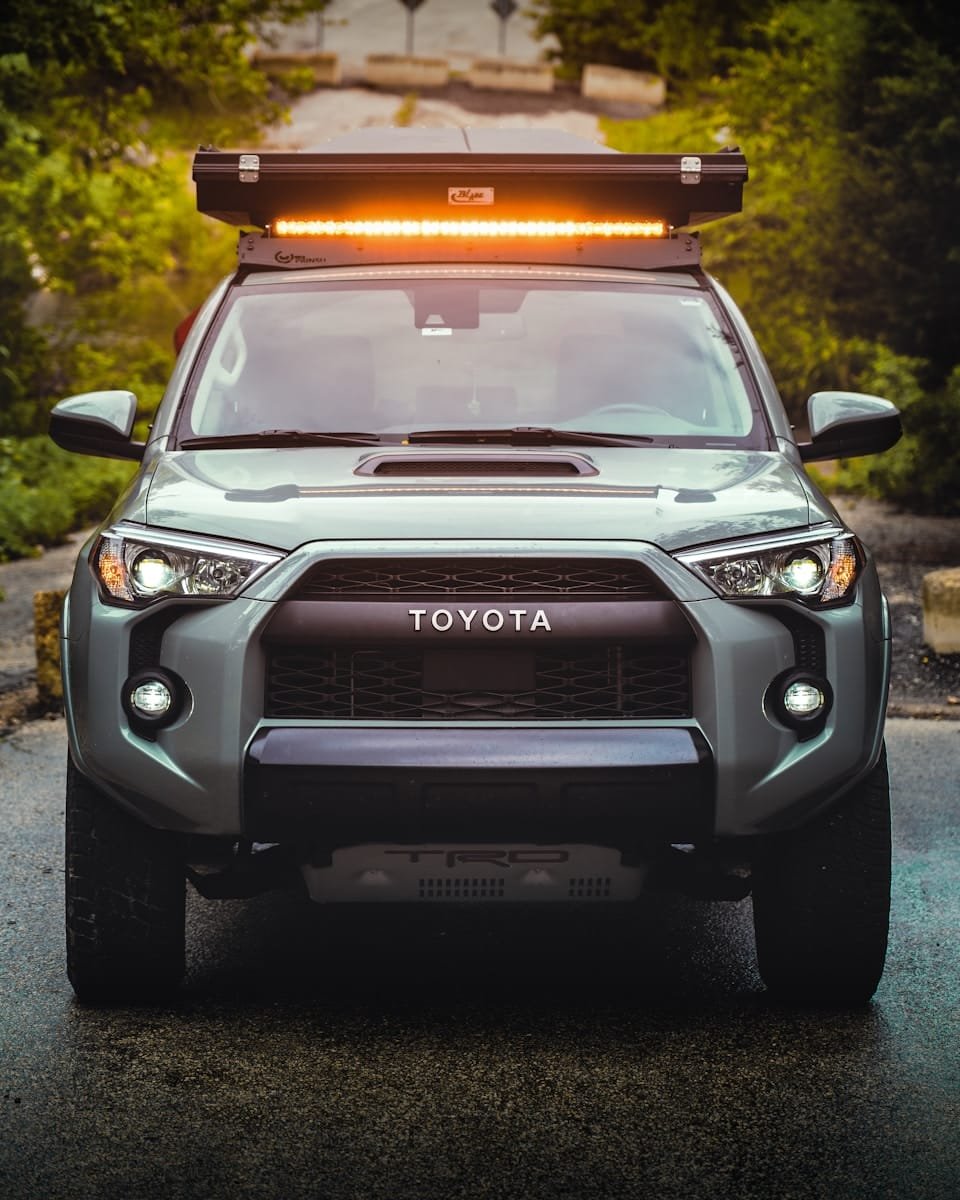
Top Brands
The Nigerian market for Tokunbo cars features a diverse array of brands, each offering unique advantages and popular models. Here’s a detailed look at some of the most sought-after car brands in Nigeria:
Toyota
Toyota is renowned for its reliability and resale value. Models like the Toyota Camry, Corolla, and Highlander are particularly popular due to their durability and fuel efficiency. The brand’s reputation for low maintenance costs further enhances its appeal among Nigerian buyers.
Honda
Honda vehicles are celebrated for their engineering and performance. The Honda Accord and Civic are favourites among consumers, known for their spacious interiors and smooth rides. The Honda CR-V, an SUV, has also gained traction for its versatility and comfort.
Kia
Kia has made significant strides in the Nigerian market, offering stylish designs and competitive pricing. The Kia Sportage is a popular choice among SUV enthusiasts, while the Kia Rio appeals to those seeking compact cars with modern features.
Hyundai
Hyundai’s reputation for quality and affordability resonates well in Nigeria. The Hyundai Elantra is favoured for its sleek design and fuel efficiency, while the Hyundai Tucson is appreciated for its spaciousness and advanced technology.
Mercedes-Benz
Mercedes-Benz represents luxury in the Nigerian automotive market. Models such as the C-Class and E-Class are highly sought after by those looking for prestige and comfort. The brand’s vehicles are often seen as status symbols.
Nissan
Nissan offers a range of vehicles that cater to various needs. The Nissan Altima is popular for its reliability as a family sedan, while the Nissan X-Trail attracts buyers seeking a capable SUV with off-road capabilities.
Volkswagen
Volkswagen has a strong presence in Nigeria, with models like the Volkswagen Jetta and Golf being favoured for their performance and handling. These cars are often appreciated for their build quality and driving experience.
BMW
BMW stands out in the luxury segment with its sporty performance and advanced technology. The BMW 3 Series is a favourite among driving enthusiasts, while the BMW 5 Series offers a blend of luxury and practicality.
Lexus
As Toyota’s luxury division, Lexus combines reliability with upscale features. The Lexus ES330 is known for its comfort, while the Lexus RX350, an SUV, offers ample space and a smooth ride.
Land Rover
Land Rover is synonymous with off-road capability and luxury. The Land Rover Range Rover appeals to buyers looking for ruggedness combined with high-end features, making it a popular choice among affluent consumers.
Subaru
Subaru is recognized for its all-wheel-drive capabilities, making it ideal for varied terrains. Models like the Subaru Outback are appreciated for their practicality and safety features.
Mazda
Mazda vehicles are known for their sporty handling and stylish designs. The Mazda CX-5, an SUV, is particularly popular due to its balance of performance and comfort.
Popular Models

When it comes to specific models within these brands, certain vehicles stand out due to their popularity among Nigerian consumers:
- Toyota Camry
- Known for its reliability, spacious interior and strong resale value.
- Toyota Corolla
- A compact sedan that offers excellent fuel efficiency and low maintenance costs.
- Toyota Highlander
- A midsize SUV that combines space with comfort, making it ideal for families.
- Toyota Avalon
- A full-sized sedan that emphasizes luxury and performance.
- Honda Accord
- Renowned for its spaciousness, advanced safety features, and smooth driving experience.
- Honda Civic
- A compact car that balances performance with fuel efficiency.
- Honda CR-V
- A versatile SUV that provides ample cargo space and comfort.
- Volkswagen Jetta
- A compact sedan known for its solid build quality and enjoyable driving dynamics.
- Volkswagen Golf
- A hatchback that combines practicality with sporty handling.
- Mercedes-Benz C-Class
- A luxury sedan that offers premium features and a comfortable ride.
- Mercedes-Benz E-Class
- Known for its advanced technology, spaciousness, and luxurious interior.
- BMW 3 Series
- Celebrated for its sporty performance and driver engagement.
- BMW 5 Series
- Offers a blend of luxury, technology, and practicality suitable for business or family use.
- Lexus ES330
- Known for its smooth ride quality and luxurious interior finishes.
- Lexus RX350
- A luxury SUV that combines style with functionality.
- Kia Sportage
- An affordable compact SUV known for its modern design and features.
- Hyundai Elantra
- Offers great value with stylish design and efficient performance.
- Hyundai Tucson
- A compact SUV appreciated for its technology offerings and spacious cabin.
- Nissan Altima
- A reliable family sedan known for its comfort on long drives.
- Nissan X-Trail
- An SUV that provides versatility both on-road and off-road.
- Land Rover Range Rover
- Represents luxury combined with exceptional off-road capabilities.
This comprehensive overview of top brands and popular models highlights the diverse options available in Nigeria’s Tokunbo car market. Understanding these choices can empower buyers to make informed decisions tailored to their preferences and needs.
Tokunbo Cars: Pricing Analysis
Understanding the pricing of Tokunbo cars is essential for making informed purchasing decisions. Prices can vary significantly based on factors such as the car’s condition, model year, mileage, and market demand. In this section, we will provide a detailed breakdown of prices by brand and model, offering a comprehensive view of what to expect when shopping for Tokunbo cars in Nigeria.
Breakdown of Prices by Brand and Model
The following table outlines the current prices for various Tokunbo car models from reputable brands. The prices are sourced from reliable platforms such as Autokunbo.com, Jiji and CarLots, reflecting the market as of October 2024.
| Brand | Model | Year Range | Price Range (₦) |
| Toyota | Camry | 2005 – 2012 | 1.8 million – 3.6 million |
| Corolla | 2005 – 2012 | 1.5 million – 3.5 million | |
| Highlander | 2005 – 2012 | 3 million – 12 million | |
| Avalon | 2005 – 2012 | 4 million – 9 million | |
| Honda | Accord | 2005 – 2012 | 1.8 million – 3.6 million |
| Civic | 2006 – 2012 | 1.5 million – 2.8 million | |
| CR-V | 2006 – 2012 | 3 million – 6 million | |
| Kia | Sportage | 2005 – 2012 | 2 million – 4.5 million |
| Rio | 2005 – 2012 | 1.5 million – 2.5 million | |
| Hyundai | Elantra | 2007 – 2017 | 2 million – 8.5 million |
| Tucson | 2005 – 2017 | 2.1 million – 8 million | |
| Mercedes-Benz | C-Class | 2007 – 2014 | 4 million – 15 million |
| E-Class | 2007 – 2014 | 6 million – 20 million | |
| Nissan | Altima | 2005 – 2012 | 1.8 million – 4 million |
| X-Trail | 2005 – 2012 | 3 million -10 million | |
| Volkswagen | Jetta | 2005 – 2012 | 1.8 million -3.5 million |
| Golf | 2006 -2012 | 1.9 million –3.8 million | |
| BMW | Series 3 | 2007 –2014 | 4 million –12million |
| Series 5 | 2007 –2014 | ₦6million –15million | |
| Lexus | ES330 | 2006 –2010 | ₦4million –10million |
| RX350 | 2006 –2014 | ₦7million –18million | |
| Land Rover | Range Rover | All years | ₦10million –40million |
| Subaru | Outback | All years | ₦3million –8million |
| Mazda | CX-5 | All years | ₦3million –9million |
Factors Affecting Prices of Tokunbo Cars
Several factors can influence the pricing of Tokunbo cars in Nigeria:
- Condition of the Vehicle: Cars that are well-maintained and have no significant damage will typically command higher prices.
- Mileage: Lower mileage often correlates with a higher price due to perceived reliability and longevity.
- Year of Manufacture: Newer models generally attract higher prices due to updated features and technology.
- Market Demand: Popular models can see inflated prices during periods of high demand, while less popular models may be discounted.
- Import Duties and Taxes: Changes in government policies regarding import duties can directly affect car prices.
Understanding the pricing landscape for Tokunbo cars is crucial for any potential buyer in Nigeria. By considering the various brands, models, and their respective price ranges, buyers can better navigate the market to find vehicles that fit their budget and needs.
Where to Buy Tokunbo Cars
When it comes to purchasing Tokunbo cars in Nigeria, finding a reliable platform is crucial. The market is filled with various options, but one platform stands out as an authoritative source for buying quality used vehicles: Autokunbo.com. This online platform specializes in providing a seamless and trustworthy experience for buyers, particularly in major cities like Abuja and Lagos.
Autokunbo Cars is designed to cater specifically to the needs of Nigerian car buyers looking for Tokunbo vehicles. The platform offers a wide selection of certified pre-owned cars, ensuring that customers have access to high-quality vehicles at competitive prices. With a user-friendly interface, Autokunbo.com makes it easy for buyers to search for their desired models, compare prices, and read reviews from other users.
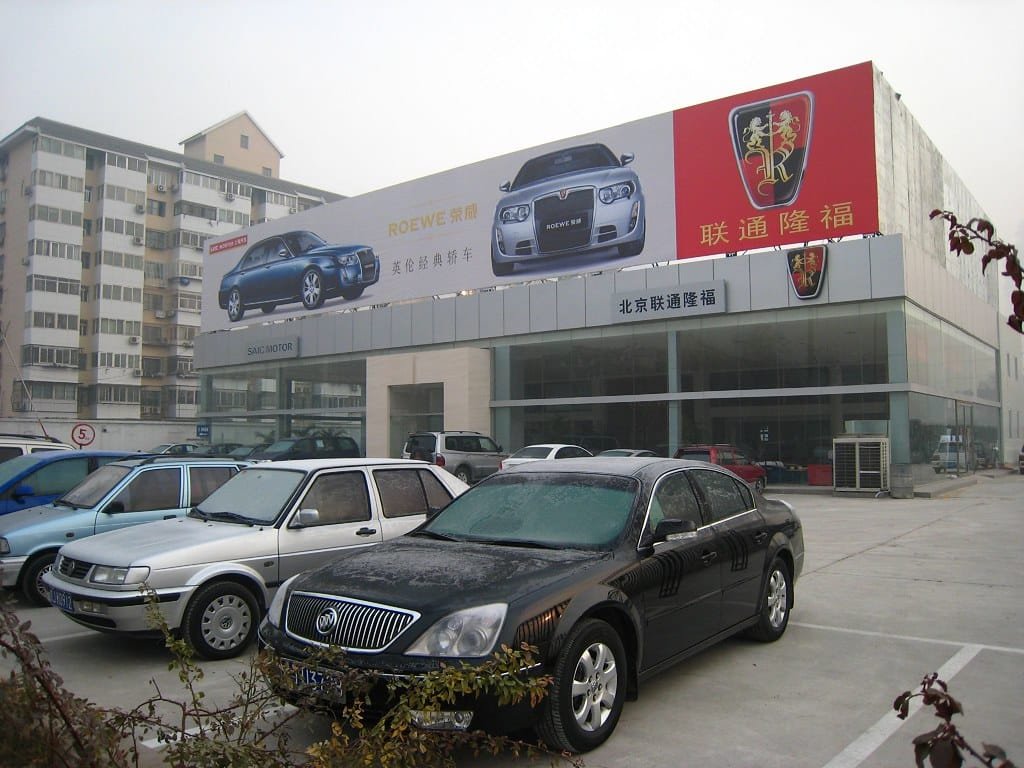
Key Features of Autokunbo.com
- Wide Selection: Autokunbo.com boasts an extensive inventory of Tokunbo cars from various brands and models. Whether you are looking for a compact sedan or a spacious SUV, you are likely to find multiple options that fit your criteria.
- Verified Listings: All cars listed on Autokunbo.com undergo rigorous inspections to ensure they meet high-quality standards. This verification process helps eliminate concerns about hidden defects or mechanical issues.
- User Reviews and Ratings: Buyers can read reviews and ratings from previous customers, providing insights into the reliability of both the vehicle and the seller.
- Easy Navigation: The website is designed for ease of use, allowing potential buyers to filter their searches by brand, model, price range, and location.
- Secure Transactions: Autokunbo.com prioritizes the safety of its users by offering secure payment options and facilitating safe transactions between buyers and sellers.
Other Platforms for Buying Tokunbo Cars
While Autokunbo.com is a leading choice, several other platforms also provide reliable options for purchasing Tokunbo cars in Nigeria:
Jiji
- One of Nigeria’s largest online marketplaces for used goods, including cars.
- Offers a wide variety of Tokunbo vehicles from individual sellers and dealers.
- Users can negotiate prices directly with sellers.
CarLots
- Specializes in used cars with a focus on providing transparent pricing.
- Offers detailed listings with photos and specifications.
- Provides financing options to help buyers afford their dream cars.
AutoNet
- A platform that connects buyers with trusted auto dealers across Nigeria.
- Offers a streamlined buying process with instant loan approvals.
- Emphasizes customer satisfaction through reliable service.
BuyCars
- Focuses on both new and used vehicles, including Tokunbo cars.
- Provides a comprehensive database of available vehicles across different regions in Nigeria.
- Offers additional services such as vehicle inspection and financing assistance.
Buying Process on Autokunbo Cars
The process of purchasing a Tokunbo car through Autokunbo.com is straightforward:
- Search for Your Desired Car: Use filters to narrow down your options based on brand, model, year, and price range.
- Review Listings: Check the details of each listing, including photos, specifications, and seller ratings.
- Contact the Seller: If you find a car that interests you, reach out to the seller through the platform’s messaging system to ask questions or negotiate terms.
- Arrange Inspection: It’s advisable to arrange for a physical inspection of the vehicle before finalizing your purchase. Autokunbo.com may assist in coordinating this process.
- Complete the Transaction: Once you are satisfied with the vehicle’s condition, proceed with the payment through secure methods offered by the platform.
- Transfer Ownership: Ensure all necessary paperwork is completed to transfer ownership legally.
Buying Tokunbo cars in Nigeria can be a rewarding experience when utilizing trusted platforms like Autokunbo.com. With its extensive inventory, verified listings, and user-friendly features, it stands out as an authoritative source for car buyers in Abuja and Lagos. By leveraging this platform along with others like Jiji and CarLots, prospective buyers can navigate the market confidently and find vehicles that meet their needs at competitive prices.
Tokunbo Cars: The Buying Process
Purchasing a Tokunbo car involves several critical steps that ensure a smooth transaction and legal compliance. Understanding the buying process, particularly the documentation required, is essential for protecting your investment and avoiding future complications. In this section will guide you through the steps necessary for purchasing a Tokunbo car in Nigeria.
Steps to Purchase a Tokunbo Car
- Research and Selection: Begin by researching various brands and models that fit your needs and budget. Utilize reputable platforms such as Autokunbo.com, Jiji, and CarLots to explore available options.
- Inspect the Vehicle: Before finalizing your purchase, it is crucial to inspect the car thoroughly. Look for signs of wear and tear, check the engine condition, and take the car for a test drive. If possible, consider hiring a mechanic to conduct a professional inspection.
- Negotiate the Price: Once you are satisfied with the vehicle’s condition, engage in price negotiations with the seller. Be prepared to discuss any repairs or maintenance that may be needed.
- Collect Necessary Documentation: Ensure that you collect all essential documents from the seller before completing the transaction. This will safeguard you against potential legal issues in the future.
- Complete the Purchase: After agreeing on a price, proceed with payment. Ensure that you receive a receipt of purchase as proof of transaction.
- Register the Vehicle: After purchasing your Tokunbo car, you must register it with the relevant authorities to obtain a license plate and ensure it is roadworthy.
Documentation Required for Buying/Registering A Tokunbo Car in Nigeria
The documentation required for purchasing and registering a Tokunbo car in Nigeria is crucial for verifying ownership and ensuring compliance with local laws. Below is a comprehensive list of documents needed during this process:
| Document Name | Description |
| 1. Letter of Attestation | A document confirming that the vehicle is legitimate and not stolen. This letter is usually provided by the seller or an authorized agent. |
| 2. Receipt of Purchase/Invoice | This legal document states the details of the vehicle purchased, including price, make, model, and seller information. It serves as proof of ownership. |
| 3. Vehicle Ownership Proof | A document showing that ownership has been transferred from the previous owner to you. This is often part of the registration certificate or change of ownership form. |
| 4. Valid Driver’s License | A certified license proving that you are legally qualified to operate a vehicle in Nigeria. |
| 5. Two Passport Photographs | Recent passport-sized photographs are often required for registration purposes. |
| 6. Copy of Utility Bill Payment | A recent utility bill (e.g., electricity or water) serves as proof of residence, which may be needed during registration. |
| 7. National Identification Card or International Passport | Identification documents that confirm your identity as part of the registration process. |
| 8. Customs Papers | For imported Tokunbo cars, customs papers are necessary to prove that all import duties have been paid and that the vehicle has been cleared by customs authorities. |
| 9. Tax Identification Number (TIN) | A unique number issued by the Federal Inland Revenue Service (FIRS) for tax purposes; required for vehicle registration in Nigeria. |
| 10. Duty Certificate | This document confirms that all necessary duties related to importing the vehicle have been paid; it is crucial for registering an imported vehicle in Nigeria. |
| 11. Vehicle License | This registration certificate shows that your vehicle is officially registered with Nigerian authorities; it must be renewed periodically (usually annually). |
| 12. Certificate of Road Worthiness | This certificate verifies that your vehicle meets safety standards and is fit for use on public roads; it’s typically required for vehicles older than four years. |
| 13. Change of Ownership Form | A form provided by licensing authorities to officially transfer ownership from seller to buyer; this must be filled out accurately to ensure legal transfer. |
Registration Process of Tokunbo Cars
Once you have gathered all necessary documentation, follow these steps to register your Tokunbo car:
- Visit Your Local Licensing Authority: Go to your state’s Board of Internal Revenue or Motor Licensing Authority office.
- Fill Out Allocation of Plate Number Form: Obtain this form at the office and fill in your details accurately.
- Submit Required Documents: Present all collected documents to an attendant at the office for screening.
- Payment Confirmation: After submitting your documents, pay any applicable fees for registration and plate assignment.
- Receive Registration Documents: Upon successful processing, you will receive a Vehicle Plate Number, Proof of Ownership Certificate, and Vehicle Identification Tag.
- Verify All Documents: Ensure that all original documents returned to you are correct before leaving the office.
Navigating the buying process for Tokunbo cars in Nigeria requires careful attention to detail, especially regarding documentation and registration procedures. By ensuring you have all necessary papers ready before starting this process, you can avoid delays and potential legal issues down the line. Following these guidelines will help facilitate a smooth transaction and secure ownership of your new vehicle confidently.
Financing Options Available for Buying Tokunbo Cars
Purchasing a Tokunbo car in Nigeria can be a significant financial commitment, and many buyers seek financing options to make the process more manageable. Understanding the various financing avenues available is crucial for ensuring that you can afford your desired vehicle without straining your budget. This section explores different car loan options, their features, and how to navigate the financing landscape effectively.
Types of Car Financing Options
Bank Loans
- Traditional banks in Nigeria offer auto loans specifically designed for purchasing vehicles. These loans often come with competitive interest rates and flexible repayment terms.
- Examples of Banks Offering Car Loans:
- First Bank of Nigeria: Offers loans up to ₦20 million with repayment terms of up to 48 months. The interest rates are competitive, making it a popular choice for many buyers.
- FCMB: Provides loans ranging from ₦500,000 to ₦30 million with repayment periods of up to 42 months. The bank’s interest rates start at around 29.5%.
- Wema Bank: Offers a car loan scheme that allows customers to finance both new and used vehicles, with maximum loan amounts reaching ₦50 million.
Microfinance Banks
- Microfinance institutions often offer more accessible loan options for individuals who may not qualify for traditional bank loans. These institutions typically have less stringent requirements.
- Fina Trust Microfinance Bank: Provides auto loans with flexible repayment plans, allowing borrowers to select vehicles according to their preferences. Loan amounts can reach up to ₦70 million, with a maximum repayment period of 24 months.
Online Financing Platforms
- Online platforms facilitate car financing by connecting buyers with lenders. These platforms often provide quick approvals and flexible repayment terms.
BuyCars: Offers an auto financing scheme that allows salary earners and registered business owners to purchase Tokunbo cars with monthly payment plans. They partner with various financial institutions to provide competitive rates.
- Betacar Financing: Focuses on quality certified used cars, allowing buyers to pay over 12-24 months with a 30% upfront payment requirement. This platform emphasizes convenience and speed in processing loan applications.
Dealership Financing
- Some car dealerships offer in-house financing options, allowing buyers to purchase vehicles directly through the dealership. This can simplify the process but may come with higher interest rates.
- Dealerships often have partnerships with banks or financial institutions, enabling them to provide tailored financing solutions based on the buyer’s creditworthiness.
Key Features of Car Loans
When considering car loans, it’s essential to understand the key features that can impact your decision:
- Interest Rates: The annual percentage rate (APR) is crucial as it determines the cost of borrowing. Rates can vary significantly between lenders, so it’s advisable to shop around for the best deal.
- Loan Amount: Most lenders specify a minimum and maximum loan amount. Ensure that the amount you need falls within these limits.
- Repayment Terms: Loan terms typically range from 12 months to 60 months. Longer terms may result in lower monthly payments but can lead to higher overall interest costs.
- Down Payment: Many lenders require an upfront payment or down payment, which can range from 10% to 30% of the vehicle’s price.
- Collateral Requirements: Car loans are usually secured loans, meaning the vehicle itself serves as collateral. If you default on payments, the lender has the right to repossess the vehicle.
Steps to Apply for a Car Loan
- Determine Your Budget: Assess your financial situation and determine how much you can afford for monthly payments without compromising your other financial obligations.
- Choose Your Vehicle: Select the Tokunbo car you wish to purchase based on your budget and needs.
- Compare Loan Offers: Research various lenders and compare their interest rates, loan amounts, repayment terms, and fees.
- Gather Required Documents: Prepare necessary documentation such as proof of income, identification (National ID or Passport), utility bills for address verification, and any other documents required by your chosen lender.
- Submit Your Application: Fill out the loan application form accurately and submit it along with your documentation.
- Await Approval: The lender will review your application and may request additional information before providing approval.
- Finalize the Purchase: Once approved, review the loan agreement carefully before signing it. Ensure you understand all terms and conditions before proceeding with the vehicle purchase.
Financing a Tokunbo car in Nigeria offers an accessible pathway for many individuals looking to own a vehicle without overwhelming upfront costs. By understanding the various financing options available—including bank loans, microfinance institutions, online platforms, and dealership financing—buyers can make informed decisions that align with their financial capabilities. Careful comparison of interest rates, loan terms, and repayment plans will ultimately lead to a successful purchase experience while ensuring financial stability in the long run.
Maintenance and Insurance of Tokunbo Cars
Maintaining a Tokunbo car is essential for ensuring its longevity, performance, and safety. Regular maintenance not only helps prevent costly repairs but also enhances the driving experience. Additionally, obtaining adequate insurance coverage is crucial for protecting your investment. This section delves into essential maintenance tips and the importance of car insurance for Tokunbo vehicles in Nigeria.
Importance of Regular Maintenance

Regular maintenance is vital for keeping your Tokunbo car in optimal condition. Here are key aspects of car maintenance that every owner should prioritize:
- Regular Oil Changes
- Changing the engine oil regularly is crucial for maintaining engine health. In Nigeria, it is recommended to change the oil every 5,000 to 7,500 kilometres, depending on the vehicle’s make and model. Fresh oil lubricates engine components, reduces friction, and helps prevent overheating.
- Fluid Checks
- Your vehicle relies on various fluids to function correctly. Regularly check and top up essential fluids such as coolant, brake fluid, power steering fluid, and windshield washer fluid. Low fluid levels can lead to performance issues and safety hazards.
- Tire Maintenance
- Proper tire care is essential for safety and fuel efficiency. Check tire pressure monthly and ensure they are inflated according to manufacturer specifications. Inspect tires for signs of wear or damage and rotate them every 5,000 to 8,000 kilometres to promote even wear.
- Brake Inspection
- The braking system is one of the most critical safety features of any vehicle. Have your brakes inspected at least once a year or whenever you notice unusual sounds or changes in braking performance. Regular maintenance ensures that brake pads, rotors, and callipers are functioning optimally.
- Battery Care
- Inspect your battery regularly for corrosion on terminals and ensure it is securely mounted. In Nigeria’s hot climate, batteries can deteriorate quickly; thus, routine checks are vital to avoid unexpected breakdowns.
- Air Filter Replacement
- A clean air filter is essential for optimal engine performance and fuel efficiency. Check the air filter every few months and replace it if it appears dirty or clogged. This is especially important in dusty environments common in many parts of Nigeria.
- Cooling System Maintenance
- Given Nigeria’s high temperatures, ensuring that your cooling system is functioning properly is crucial. Regularly check coolant levels and inspect the radiator for leaks or damage. Flushing the cooling system periodically helps prevent overheating.
- Light and Signal Checks
- Ensure that all exterior lights are functioning correctly, including headlights, brake lights, and turn signals. Replace any burned-out bulbs promptly to maintain visibility and safety on the road.
- Professional Servicing
- While regular checks can be performed by owners, it’s advisable to have professional servicing done at least twice a year. Certified mechanics can identify potential issues before they become major problems.
Importance of Car Insurance
Obtaining insurance coverage for your Tokunbo car is not just a legal requirement; it also provides financial protection against unforeseen events such as accidents or theft.
- Types of Insurance Coverage
- Third-Party Insurance: This is the minimum legal requirement in Nigeria and covers damages caused to other vehicles or property in an accident.
- Comprehensive Insurance: Offers broader coverage, including protection against theft, vandalism, natural disasters, and damages to your own vehicle in case of an accident.
- Benefits of Car Insurance
- Financial Protection: Insurance can cover repair costs resulting from accidents or damages, reducing out-of-pocket expenses.
- Peace of Mind: Knowing that you are financially protected allows you to drive with confidence.
- Legal Compliance: Driving without insurance can result in fines or legal issues; having insurance ensures compliance with Nigerian laws.
- Choosing an Insurance Provider
- When selecting an insurance provider, consider factors such as coverage options, premium costs, customer service reputation, and claim settlement efficiency. Online platforms like BuyCars.ng can provide insights into various insurance options available in Nigeria.
- Regular Policy Review
- It’s essential to review your insurance policy periodically to ensure it meets your current needs—especially after significant life changes such as moving or changes in vehicle usage.
Maintaining a Tokunbo car involves regular servicing and diligent care to ensure its longevity and performance on Nigerian roads. By following essential maintenance practices—such as routine oil changes, fluid checks, tire care, brake inspections, battery maintenance, air filter replacements, cooling system checks, light inspections, and professional servicing—owners can significantly enhance their vehicle’s lifespan.
Additionally, securing adequate car insurance provides financial protection against various risks associated with vehicle ownership. By understanding both maintenance needs and insurance requirements, Tokunbo car owners can enjoy a safe and reliable driving experience while protecting their investment effectively.
Pros and Cons of Buying Tokunbo Cars
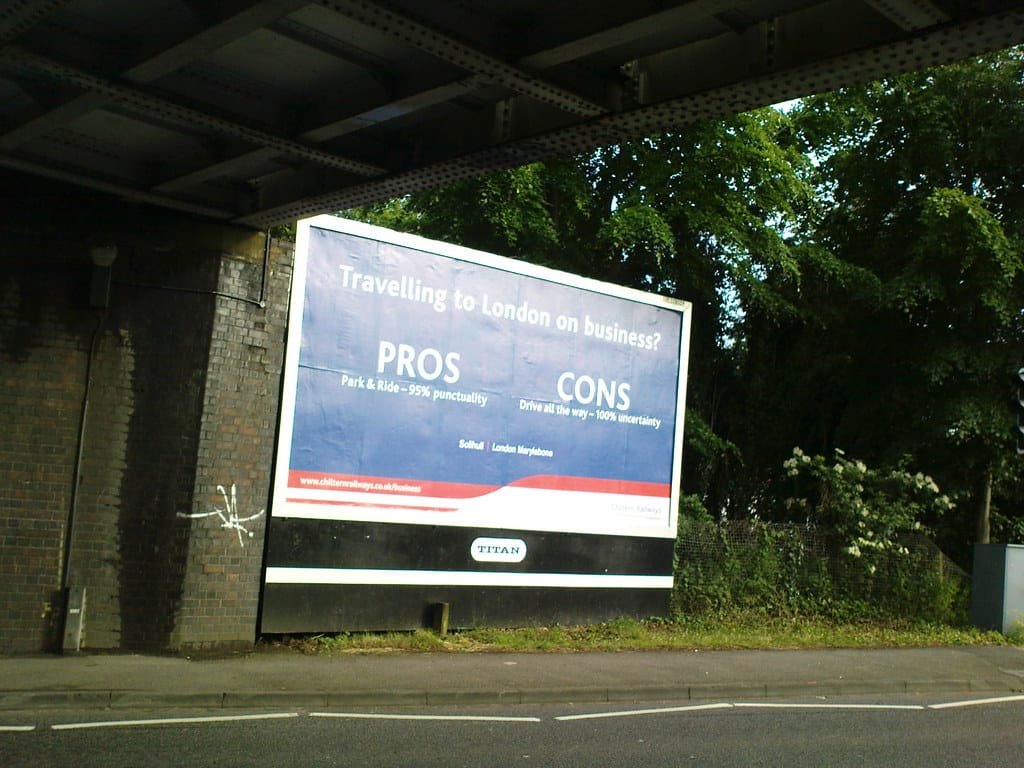
When considering the purchase of a Tokunbo car in Nigeria, it is essential to weigh the advantages and disadvantages. Understanding these factors can help potential buyers make informed decisions that align with their needs, budget, and expectations. This section explores the pros and cons of buying Tokunbo cars, providing a comprehensive overview of what to consider before making a purchase.
Advantages of Buying Tokunbo Cars
- Affordability
- One of the most significant advantages of Tokunbo cars is their affordability compared to brand-new vehicles. With the rising cost of living in Nigeria, many consumers find it challenging to afford new cars. Tokunbo cars provide a more accessible option for those seeking reliable transportation without breaking the bank. For instance, prices for various Tokunbo models can range significantly, allowing buyers to select vehicles within their budget.
- Variety of Options
- The Tokunbo market offers a wide variety of brands and models, from compact sedans to luxury SUVs. Buyers can find vehicles from reputable manufacturers such as Toyota, Honda, Mercedes-Benz, and BMW. This diversity enables consumers to choose cars that best fit their lifestyle and preferences.
- Quality and Reliability
- Many Tokunbo cars are imported from countries with better road conditions and maintenance cultures, such as the U.S. and Europe. These vehicles often come with a history of regular servicing and care, which can enhance their reliability compared to locally used cars.
- Depreciation Advantage
- New cars typically depreciate quickly within the first few years of ownership. In contrast, Tokunbo cars have already undergone significant depreciation, allowing buyers to purchase them at lower prices while retaining better resale value over time.
- Access to Luxury Brands
- For many buyers, owning a luxury vehicle is often financially out of reach when considering new models. However, Tokunbo cars make it possible to own luxury brands like Mercedes-Benz or BMW at a fraction of the original price.
- Lower Insurance Costs
- Generally, insurance premiums for used vehicles are lower than those for new cars. This can lead to significant savings over time for owners of Tokunbo cars.
Disadvantages of Buying Tokunbo Car
- Potential Hidden Issues
- One major downside is the risk of hidden mechanical problems that may not be immediately apparent during inspection or test drives. Some sellers may not disclose issues related to the engine, transmission, or other critical components. It’s essential for buyers to conduct thorough inspections or seek professional advice before making a purchase.
- Limited Warranty Options
- Unlike new cars that often come with manufacturer warranties, most Tokunbo cars have limited or no warranty coverage. This can lead to higher out-of-pocket expenses for repairs if issues arise shortly after purchase.
- Possible Fraudulent Practices
- The Nigerian used car market has been marred by instances of fraud where locally used cars are misrepresented as Tokunbo vehicles. Unscrupulous dealers may sell vehicles that have been poorly maintained or damaged without disclosing this information. Buyers must exercise caution and conduct due diligence when purchasing from unfamiliar sources.
- Registration Challenges
- Registering a Tokunbo car can sometimes be cumbersome due to bureaucratic processes and requirements for documentation. Buyers should be prepared for potential delays in obtaining necessary paperwork like customs clearance and registration certificates.
- Higher Maintenance Costs
- While many Tokunbo cars are reliable, they may still require higher maintenance costs compared to new vehicles due to their age and wear-and-tear factors. Regular upkeep is essential but can become expensive over time.
- Fuel Efficiency Concerns
- Some older models may not be as fuel-efficient as newer ones equipped with advanced technology aimed at reducing fuel consumption. This can lead to higher running costs over time, especially in Nigeria’s fluctuating fuel market.
Buying a Tokunbo car in Nigeria presents both significant advantages and notable challenges. The affordability, variety, quality, depreciation benefits, access to luxury brands, and lower insurance costs make them an attractive option for many buyers. However, potential hidden issues, limited warranties, risks of fraud, registration challenges, higher maintenance costs, and fuel efficiency concerns must be carefully considered.
By weighing these pros and cons thoughtfully and conducting thorough research before making a purchase decision, prospective buyers can make informed choices that align with their financial situations and personal preferences in the vibrant Nigerian automotive market.
Conclusion
The landscape of the Tokunbo car market in Nigeria is a dynamic and evolving sector that reflects broader economic trends, consumer preferences, and the challenges faced by buyers. As this comprehensive guide has illustrated, purchasing a Tokunbo car offers both significant advantages and notable drawbacks. Understanding these facets is crucial for potential buyers to make informed decisions.
Summary of Key Points
- Affordability and Value: Tokunbo cars present an attractive option for many Nigerians due to their affordability compared to new vehicles. With the rising costs of new cars—often exceeding ₦40 million for entry-level models—Tokunbo cars provide a viable alternative for middle-class consumers seeking reliable transportation without the financial strain.
- Market Growth: The Nigerian used car market, valued at approximately USD 1.14 billion in 2024, is projected to grow at a compound annual growth rate (CAGR) of 8.90% through 2029. This growth is driven by factors such as increasing demand for imported used cars, the emergence of online platforms, and shifting consumer preferences due to economic pressures.
- Challenges: Despite the benefits, buyers must navigate several challenges, including potential hidden issues with vehicles, limited warranty options, and the risk of fraud. Reports indicate that many buyers have encountered misrepresented vehicles or faced difficulties during the registration process. Additionally, the impact of rising import tariffs has led to increased prices for Tokunbo cars, which surged by over 100% in recent years.
- Maintenance and Insurance: Regular maintenance is vital for ensuring the longevity and reliability of Tokunbo cars. Owners must prioritize routine checks and servicing while also securing adequate insurance coverage to protect their investment against unforeseen events.
- Consumer Experiences: Testimonials from buyers highlight a mix of satisfaction and frustration in the Tokunbo market. While many appreciate the affordability and variety available, others have faced challenges related to vehicle quality and post-purchase support.
Future Trends in the Tokunbo Cars Market in Nigeria
As Nigeria continues to grapple with economic fluctuations—including currency devaluation and inflation—consumer preferences are likely to shift further toward Tokunbo cars. The increasing internet penetration and the rise of e-commerce platforms are expected to enhance the buying experience by providing consumers with access to more information and options than ever before.
Moreover, as dealers adapt to changing market conditions, we may see innovations in how Tokunbo cars are marketed and sold. The potential for cross-border sales could also expand opportunities for Nigerian consumers to access better deals on used vehicles from neighboring countries.
Final Thoughts
In conclusion, purchasing a Tokunbo car can be a rewarding experience if approached with caution and informed decision-making. Buyers should conduct thorough research, utilize reputable online platforms like Autokunbo.com, and ensure they understand all aspects of vehicle maintenance and financing before making a purchase.
By being informed about the pros and cons of Tokunbo cars, as well as staying updated on market trends and prices, prospective buyers can navigate this vibrant automotive landscape confidently. As the market continues to evolve, it will remain essential for consumers to adapt their strategies to secure the best possible outcomes in their vehicle purchases.


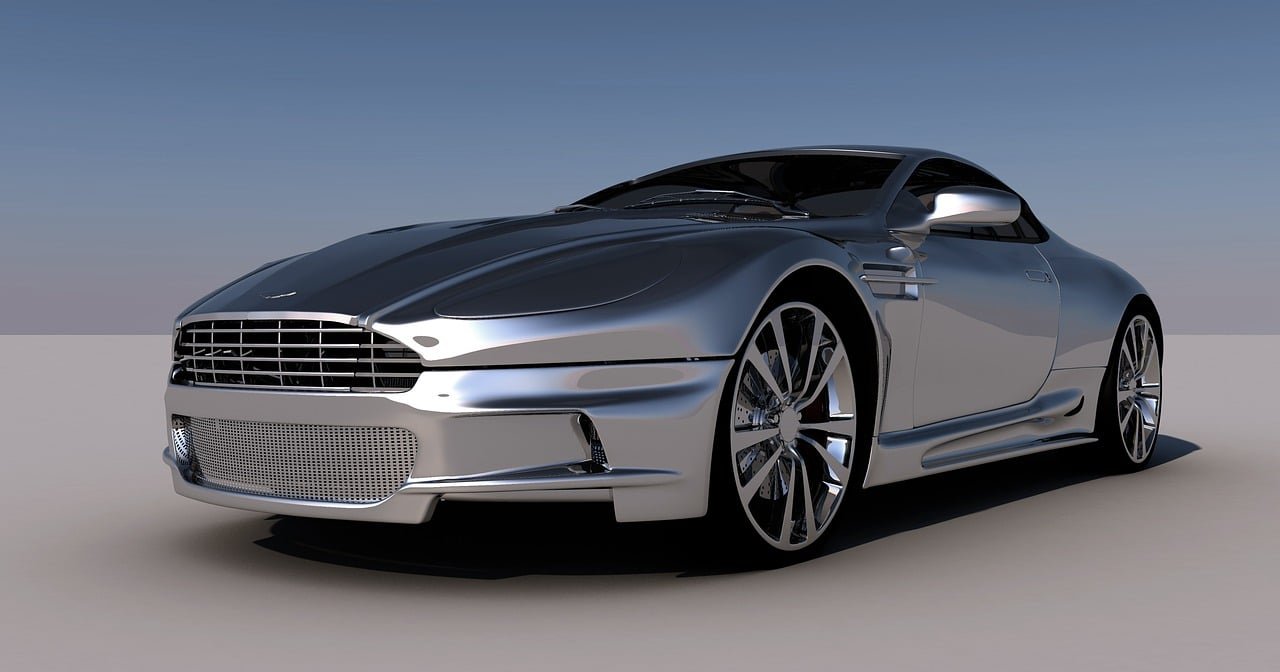
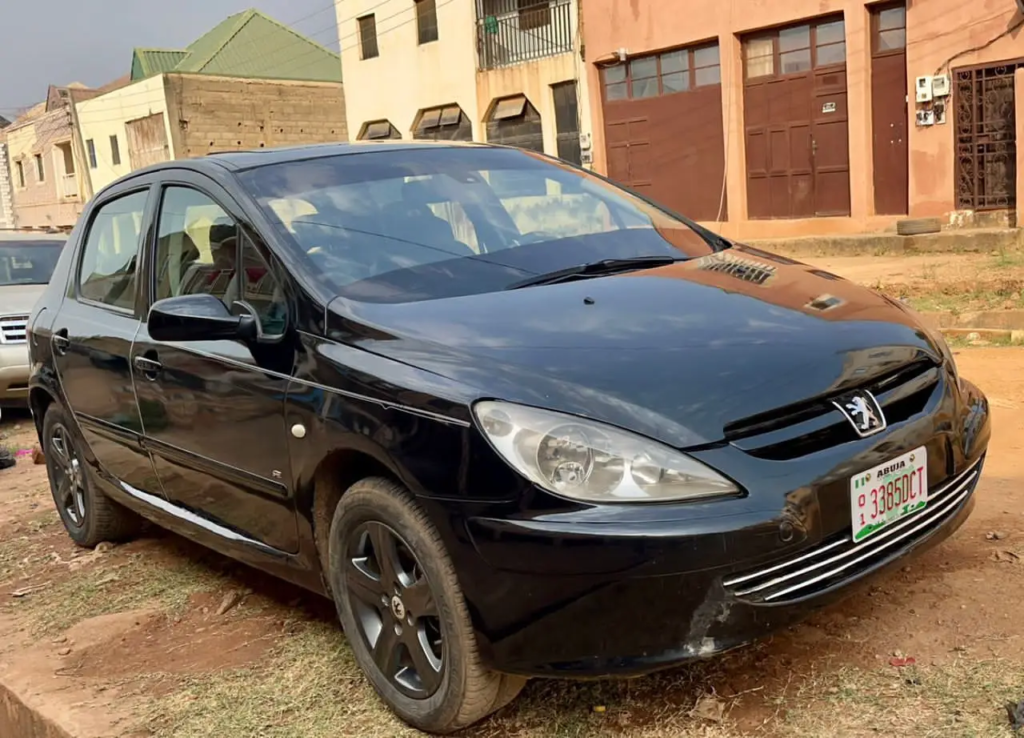
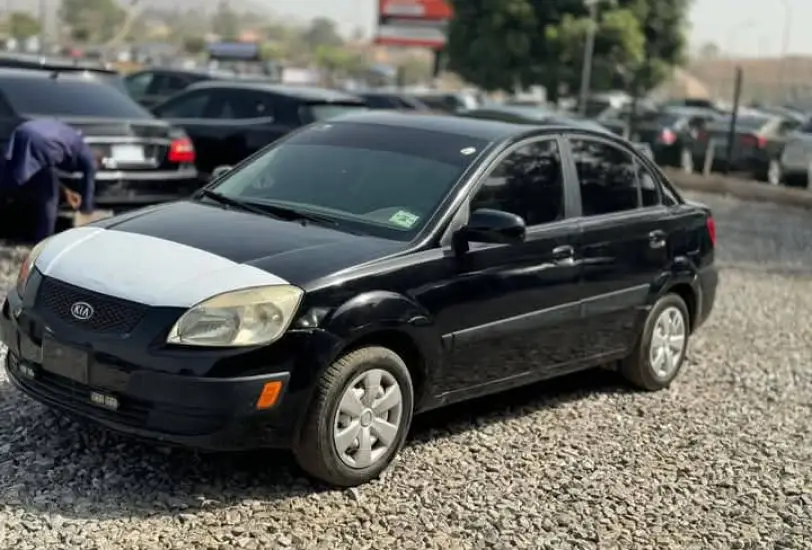

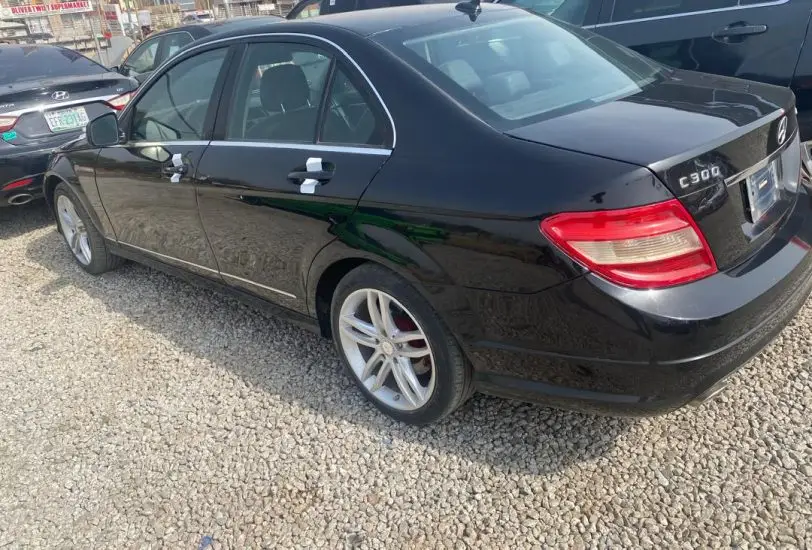

1 Comment
You’ve made even the simplest ideas feel profound with the care and depth you bring to your writing.